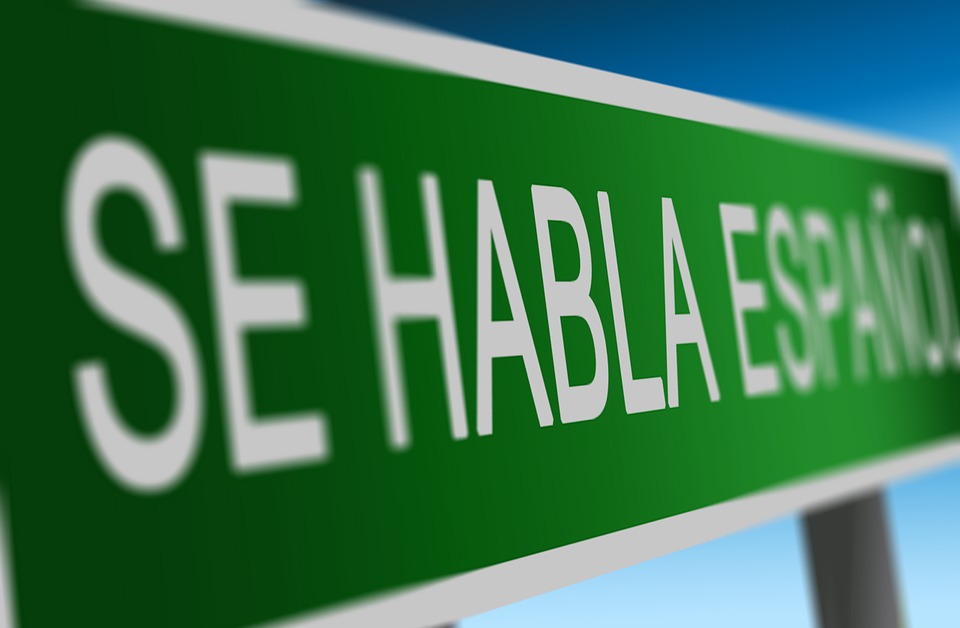A reader recently left a comment here at PR51st, saying that Puerto Rico would have to become independent if the people insist on speaking Spanish. Armando A. Cardona left a great response:
WRONG. Statehood is a form of political integration NOT cultural assimilation and the establishment of an official language or languages is the province of each State and not the Federal Government or prejudiced Anglocentric monolingual English speakers of European ancestry in the US–which is the reason Hawaii has English and native Hawaiian as official languages, Louisiana has English and French, new Mexico has English and Spanish and Alaska has English and more than 20 native Alaskan languages including various Inuit dialects as official languages.
If Puerto Rico as a State of the Union can decide its own official languages then the fact that a majority of the residents of Puerto Rico (myself included) are native Spanish speakers is NO reasonable or acceptable bar to making Puerto Rico a State of the Union RIGHT NOW–aside from the fact that 20% to 25% of Puerto Rico’s native Spanish speakers are English-Spanish bilingual and another 25% to 30% though not bilingual understand and speak English well enough to hold a meaningful conversation.
GOOD ENOUGH FOR STATEHOOD, ENOUGH DILLY-DALLYING ALREADY.
Armando makes excellent points, beginning with the fact that statehood is a political status, not a method for cultural integration.
Each of the current 50 states has its own culture, its own language variations in vocabulary and pronunciation as well as in the languages spoken in homes, its own special dishes, its own music and dance and other cultural traditions. Puerto Rico will be no different.
Is English the national language?
No. The United States does not have, and never has had, a national language.
In 2006, the Senate passed a bill declaring English the national language, even though a number of senators called the measure “racist,” divisive,” and “anti-American.” The bill didn’t get any further. It died and entered history alongside the English Language Unity Act, the English Language Empowerment Act, the English Language Amendment, and the first but unnamed proposal of English as a national language in 1780. Many, many times English has been proposed as the national language, and every single time it has failed.
32 states have declared their own official languages. As Armando points out, that includes states with multiple official languages. Puerto Rico currently has two official languages: English and Spanish. Other territories have also declared official languages. For example, in the Northern Mariana Islands, English, Chamorro, and Carolinian are all official languages.
The bottom line is this: The United States has no official language. By the Constitution, anything that isn’t covered in the U.S. Constitution is under the power of the states. This means that Puerto Rico, as a state, can make its own decision about languages. Having two official languages is quite common among the current states, and will not create any problems for the 51st state, Puerto Rico.
Is Spanish a problem?
No. Spanish is already the most common language spoken in the United States, after English. Puerto Rico will not be the state with the largest number of Spanish speakers. English is the only language spoken in 80% of homes in the United States, but Spanish is spoken by more than 41 million people in the United States.
Easy access to a large, educated, bilingual workforce will be a benefit for U.S. corporations in the states in need of better communication with the growing Spanish-speaking population in nearly every state.
Enough dilly-dallying already
We have been told that we have to wait for statehood until we recover from the recession, until we recover from the hurricanes, until we recover from the pandemic… All these things are important, but we see again and again that recovery is easier for states than for territories. Tell your legislators that you want equality through statehood for Puerto Rico now.
Enough dilly-dallying already.








One response
The USA does not have an official language- correct. 41 million people in the USA speak Spanish- Correct. However, 300 + million speak English correctly. The issue is that PR local residents should make the effort to speak English, as well as Spanish. Fluency in the English language should be an integral part of the public school educational system in PR. Yes, The USA is multicultural and multi-linguistic, but, what UNITES us as a nation is the common bond of the English language and a true understanding of the USA history. When Mr. Cardona states that Statehood is NOT cultural assimilation, he challenges the notion of why P Ricans advocate for Statehood. It comes across as – P RIcans wanting ONLY the financial convenience of both Statehood and American Citizenship, but nothing else. How many American flags are in display in the island of PR every time there is some sort of manifestation? Even the Coronavirus masks had the ELA symbol and/or the PR flag, You do not see this anywhere else. The issue is that PR come across as “PR first and only”. I respectfully disagree with Mr. Cardona. We are AMERICANS FIRST, or we are not. PR cannot continue to advocate to have it both ways. True Integration, Requires an appreciation of what it is to be an American, I do not perceive that from PR- other than the financial benefits.
Also, your website is not clear on the following points:
1- Incorporating the Territory of PR in congress.
2- Same federal tax laws as the States – again, you cannot have it both ways and advocate for statehood while being a tax heaven for multinationals.
3- Federal IRS definition of a local PR resident for tax purposes needs to be updated in congress and eliminate the description of “non-resident alien” for tax purposes.
Respectfully,
I was born and raised in PR. But, I am first and foremost an AMerican. Always have been and always will be. Best of luck.